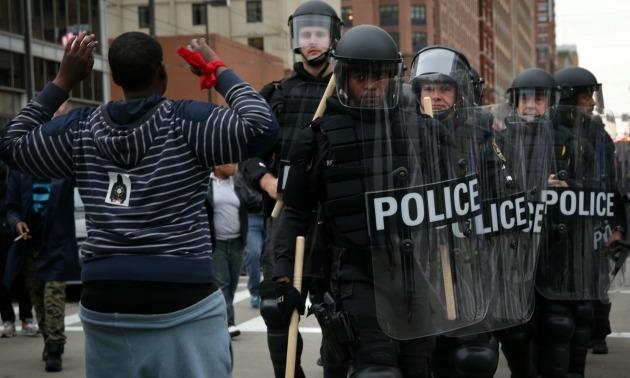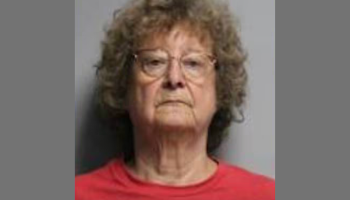
Source: Alex Wong / Getty
In another grim reminder of the failed American justice system, District Attorney Ismael Ozanne of Dane County, Wisconsin just announced that Officer Matt Kenny has not been found guilty for the shooting death of unarmed black teen, Tony Robinson Jr.
This announcement is devastating because: one, this is just one of many murders we’ve seen where a young Black life was lost at the hands of the police. Two, during his opening statements on the Robinson case, Ozanne spoke extensively about his allegiance and mission to uplift the Black community through his work. But yet again, we’ve seen another Black public figure in our country who has yet to bring justice to those who have died from racial stigma and oppression.
Whether in my own home or through my TV screen, I’m continuously confronted by people who are convinced that Black people’s experiences of police brutality can be absolved by changing their style of dress, demeanor and socioeconomic status. But these factors are just futile attempts to be validated in the eyes of white people (specifically law enforcement) who feel entitled to annihilate us because of their own biases. Seeing the success of Black people across different fields in the early 21st century clearly shows us that having positions of power is not the end-all solution to erasing our own oppression. If the Black Lives Matter movement is going to succeed in its goal of protecting the safety and humanity of Black people across America, we must see an end to respectability politics and to police acting with impunity in a hyper-militarized political state.
The limits of Black achievement in protecting our community is especially salient to today’s movement because the deaths of individuals like Robinson, Freddie Gray and Walter Scott are contextualized by influential politicians of color. Like Ozanne, these are the same political figures who now have to clean up the mess left behind by White cops and their racially-charged acts of violence.
MUST READ: Black Rage Is Valid, Even When It Makes White People Uncomfortable [OPINION]
In recent years, we’ve had the wonderful fortune of celebrating the elections of Black Americans into high-level political offices—whether or not we agreed with their beliefs and platforms. In 2010, Ozanne became the first ever Black district attorney in Wisconsin. Just days ago, Loretta Lynch was sworn in as the first African-American woman to be attorney general. It’s worth noting that her predecessor, Eric Holder, Jr., was the first African-American attorney general for the country.
Naturally, Obama must be mentioned for his achievement in making it to not just one but two terms in office as our first Black commander in chief. Furthermore, as Baltimore is making headlines as the latest city to be engulfed by protests of the Black Lives Matter movement, Mayor Stephanie Rawlings-Blake, Police Commissioner Anthony Batts and District Attorney Marilyn Mosby have taken center stage in their efforts to get the city under control.
However, my enthusiasm and faith in their actions in support of the Black community has been quelled by the fact that we’ve routinely seen cases of ordinary, innocent Black citizens lose their lives at the hands of police officers during their respective tenures. Furthermore, they’ve wrongfully put more emphasis on lambasting protestors for their “violent” actions rather than explaining to the rest of the country why they have a right to be angry. It confounds me that Black leaders have expressed so much concern over maintaining commercial spaces and infrastructure in cities impacted by the movement when Black lives are constantly and brutally being cast aside with impunity.
I applaud Lynch, Obama and Rawlings-Blake for acting on the unrest in Baltimore with urgency and for being outspoken about race, the issues faced by poor people of color and their viewpoints about the most constructive forms of protest at this time. However, I don’t agree with Black leaders’ efforts to be politically correct to save face with those who aren’t sympathetic with the concerns of the Black lives matter movement and who will never share the experiences of marginalized people of color.
The Black elite is no longer just a dream being housed in W.E.B. DuBois’ mind. Our country is slowly harvesting generations of upwardly-mobile, assimilated Black folk, and yet we still carry stigmas in the color of our skin and the sag in our jeans that are out of our control. The fear that others have for Black bodies is so real that it’s tangible. The only way to deal with the gravity of that is to abandon trivial ideas of what it means to be black and righteous—and to not let our achievements allow us to be complacent or apathetic.
Why Black Achievement Won’t Save Us from Police Brutality [OPINION] was originally published on hellobeautiful.com















